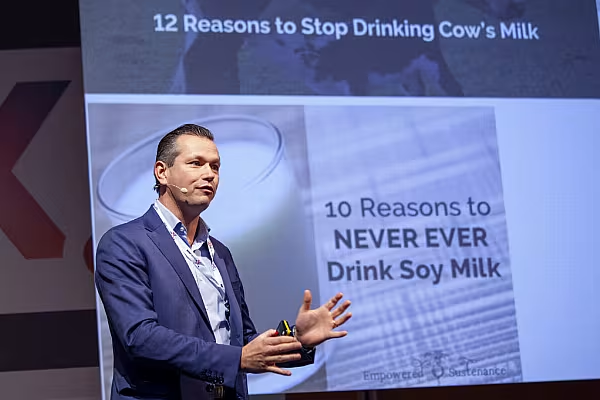A combination of health tracking, meal planning and the increased role of 'smart appliances' in our daily lives are likely to impact how consumers approach nutrition in the future.
As the recent Newtrition X. innovation summit in Cologne explored, how we shop, how we prepare meals and the composition of our daily diets is likely to change dramatically in the coming years, with several firms offering their insight as to the emerging trends they believe will gain traction.
Making It Easy
As Michael Haase, founder and CEO of the Danish app provider Plant Jammer, explained at the summit, "If you want to change behaviour permanently, then you have to make it easy for people", and the company's AI-based approach aims to make nutrition easier to embrace.
The Plant Jammer app combines millions of recipes with personalised recommendations via AI, tailored to taste preferences and health requirements, such as sugar reduction or increased vitamin intake.
In addition, Plant Jammer is working alongside Miele, which has developed a range of smart household appliances that prepare food in such a manner that the nutrient content is preserved in the best possible way, as well as refrigerators that use sensors to detect what is in stock and what needs to be purchased.
"Personalised nutrition only makes sense when people cook – and when they know how to," Roland Napierala, business development at Miele Smart Home explained at the summit.
The aim of the cooperation between Plant Jammer and Miele is to network the entire food chain.
Or, as Haase put it, "In five years, Google Home will tell me on my way home from work that the mushrooms in my fridge urgently need to be prepared, that I should eat more fibre, that carrots are available to go with my dinner, and will recommend that I cook a risotto from these ingredients because my family enjoys that dish. While still on my journey, I’ll get information about the preparation and nutrient content, and when I arrive home, any missing ingredients will be on my doorstep."
Convenience Reinvented
For many people, however, having the time to prepare meals every day is unrealistic, and convenience foods offer a workable solution.
But just as gluten-free, lactose-free and sugar-free convenience options are now more widely available, so more tailored products are also creeping into the mainstream. We are potentially not that far away from the introduction of products tailored to the metabolic properties of the individual, determined either by the microbiome or the genes.
As Dominik Burziwoda, the founder of Perfood (which is behind the personalised nutrition programme MillionFriends) explained at the summit, the food industry has a duty to meet the challenges posed to society by unhealthy nutrition through comprehensive research, and the development of healthier products.
Citing a recent cooperation with mymuesli, Burziwoda explained that 69% of customers surveyed said they would prefer a personalised muesli product to a conventional one, and in some cases would be prepared to pay a higher price.
However, in order to really establish such products in the retail trade, the system – from tracking to the end product – would have to be "fast, easy and affordable". This is part of the thinking behind Perfood's MillionFriends programme; developing self-learning algorithms to find out which nutrition type a person has, and which products best suit them.
Consumer Education
However, the fact that the food market is becoming more and more differentiated also has it downsides. 'Expert advice' on what is good or bad is continuously changing, while the market is awash with products that claim multiple functionalities.
As a result, consumer uncertainty is growing. And this is exactly where retailers can win new customers with a 'food as a service' approach, according to Ignace de Nollin, CEO of Smartwithfood, a spin-off of the largest Dutch retailer Colruyt Group (pictured).
"Smartwithfood's goal is to build a bridge between the individual and his needs and food through recipes, product recommendations and nutrition plans," de Nollin explained at the summit.
For example, the Smartwithfood app, with a personal profile based on more than 250 parameters, directs shoppers to the right products when shopping in a supermarket. "If you want to reduce sugar and scan a biscuit in the supermarket, we won't recommend an apple, but a reduced-sugar biscuit variant," he adds.
Further analysis of nutrition trends will take place at a two-day Newtrition X. conference. taking place next, organised by foodRegio e.V. For more information, visit www.newtritionx.com.
© 2019 European Supermarket Magazine – your source for the latest retail news. Article by Stephen Wynne-Jones. Click subscribe to sign up to ESM: European Supermarket Magazine.














